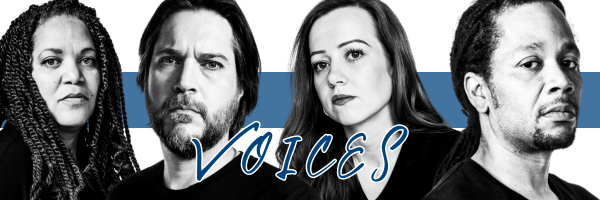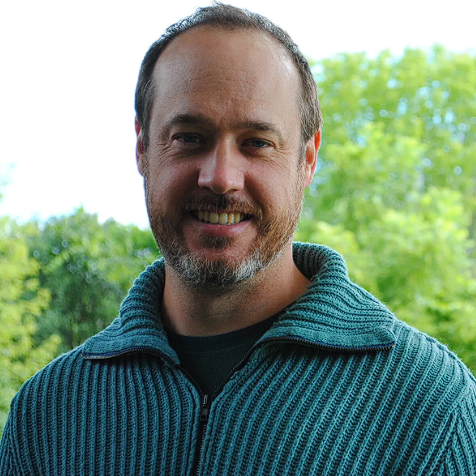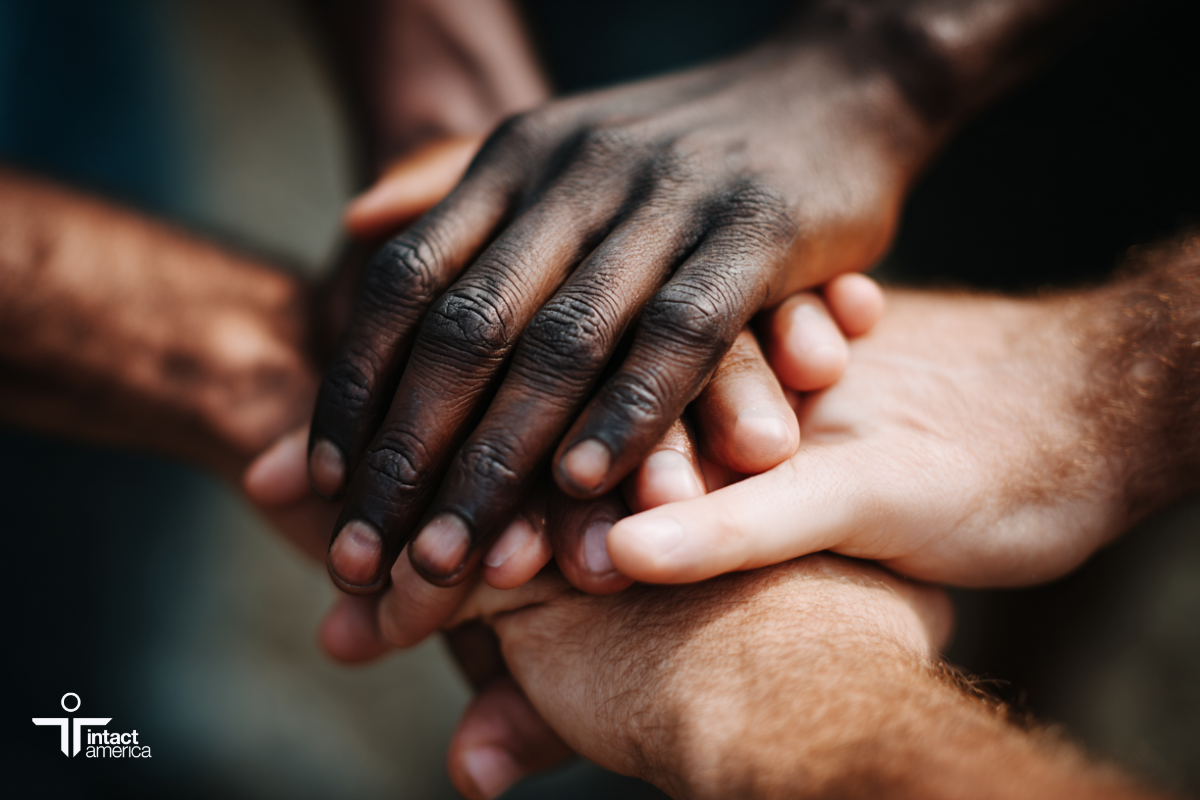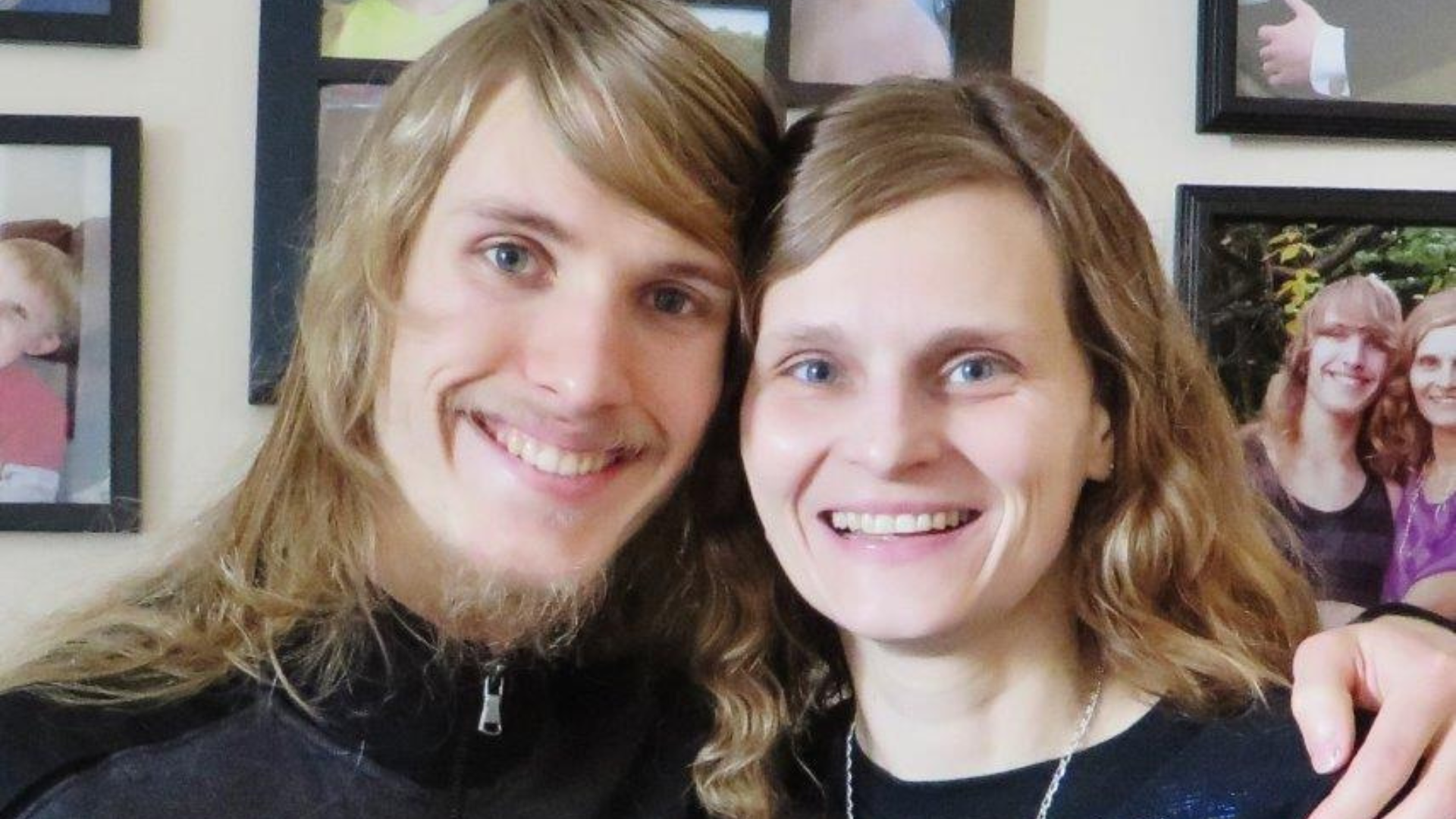
I am honored to be a part of Intact America’s Voices column and to get a chance to speak from my voice and the voice of others. I work as a social worker in Southern Ontario, Canada, and I will be one of the clinicians facilitating support groups with Intact America for those who have experienced the forced genital cutting of their penis. It is a true privilege to be a part of the intactivist movement.
I often think about what the day would look like, when I open my phone (or whatever device I am using by then) and read a news article about the end of forced genital cutting. How old will I be? Will I even be around to see this? Who will go first in outlawing the practice? What kinds of sacrifices will it take? What kinds of sacrifices will I have to make?
The ending of the practice of genital mutilation is a minefield of dangerous politics. So many of us who speak out are silenced by parents and family who have been indoctrinated into the amputational culture of medicine. Nations and states that consider outlawing the practice face outcries and accusations of religious persecution. We live in a world where the male body is either a proving ground for strength or a site for humor, and both of these discourses fit conveniently into widespread complacency around the practice. In Ontario, where medicine, religion and policymakers blatantly ignore Charters of Rights,* parental power over decision making is substantial and leaves little room for the voice of the traumatized.
Speaking up and advocating from a place of trauma and subordination is an even greater feat. When we as men wake up every day to a mutilated body that reminds us that no one protected us from the horrors of a barbaric cultural practice, the trauma can be silencing. The torment of being culturally branded and never knowing what it means to have a full and complete body can be so consuming that it makes advocacy difficult. Add to that the silencing power of traditional masculinity–to “be a man” — and the way forward is tough.
So, where to push for change in outlawing the mass mutilation of entire generations of males? I remember being an undergrad in the early 2000s and watching the trans movement begin to align with what was then the LGB (lesbian/gay/bisexual) movement. Many were worried the LGB movement would gain traction and leave trans people behind. I think we need to continue working to connect with the LGBTQ movement through Pride Day events, especially parades, to build awareness at the local level.
We also need to continue to engage in language that more accurately defines what was done to us. Most people have no idea what happens to their baby when the child is taken from them after birth The language needs to be clear: The infant’s foreskin is forcibly retracted, and multiple important parts of the genitals are amputated, including the frenulum, inner mucosa, outer foreskin and ridged band. In informal spaces, news articles and professional circles, the procedure is referred to as a “snip,” or a “little cut.” This language is deceptive, manipulative, and completely unacceptable, even more so given that the victim gives no consent. What is done to infants is violent, invasive and barbaric. Appropriate language should include words like forced retraction, forced cutting, mutilation and amputation.
To push for change, we need to link with different groups in our intactivism. If we include various groups in the movement, it makes more complex collaboration possible and helps to solidify the narrative of intactivism. If we can link multiple groups who are currently on the periphery of our movement, we can build on our story of protecting bodily autonomy, standing for infant rights and pursuing equal protection under the law. I strongly believe that this will be the story that propels us forward into mainstream media and into household culture in the West.
Thinking about whom to invite in further, I’m wary of medical involvement, as dominant medical voices have ignored layers of protective legislation, enjoyed massive lobbying power and profited greatly from mutilating practices. Doctors are indoctrinated into the clinical and sterile world of medicine and can become numb to the violations of forced genital cutting.
I am more hopeful about working with religious and indigenous communities. We need more people like Lisa Braver Moss and Rebecca Wald, who have written about the Brit Shalom practice. We need more rabbis, like Nathan Segal, who have officiated Brit Shalom ceremonies. We need collaboration with the Muslim community. We need the voices of indigenous communities whose children were mutilated by white colonists in efforts toward assimilation. With the advance of movements that recognize the grave harm that colonization has done to indigenous peoples, imagine the possibilities of connecting with Aboriginal mobilization. We need to join voices with all people who have been colonized by forced genital cutting. Inviting these groups into our spaces can bring about possibilities for change.
We need to continue to use social media to our advantage. The art of making a difference is about channeling anger and rage into effective vehicles for change. The Reddit communities of r/Intactivism, r/CircumcisionGrief, and r/Circumcisionscience are good examples. An active, informative presence on Facebook, TikTok and Instagram will go a long way too. It is in this grassroots, digital landscape where victims will find voice and build community. Building momentum toward what Intact America calls a tipping point of public support to end circumcision—especially among millennials, Gen Z and Gen Alpha—will happen online.
I will end with words from social work scholar Bob Mullaly: “Anger is what will enable those of us who are committed to anti-oppressive social work to translate our social justice ideals into practice and continue the struggle for liberation.” We must continue to arouse upset in those around us. I strongly believe that if we continue to push forward and mobilize our anger, we will reach a tipping point.
*Canadian Charter of Rights and Freedoms, Sections 7 and 15, 1982; the Health Care Consent Act (1996, Section 21[2C], 4), and multiple articles on the UN Convention of the Rights of the Child (1989)
— Dale Andersen
Interested in lending your voice? Send us an email, giving us a brief summary of what you would like to write about, and we will get back to you.
Read more about Dale and other intactivist therapists here >>








Eugene Belilovsky
July 31, 2024 11:57 amGreat article Dale! Thank you very much for writing this !
Bettie Malofie
September 1, 2024 11:14 amIt is a mistake for the intact crusade to align itself with other causes, even the ones I happen to support and agree with. Your cause needs to be a one-trick pony.
Geordie
September 19, 2024 5:07 pmWhat a great article. I am encouraged to see a Canadian write an article on Intact America’s website. Sometimes the intactivist language of saying “RIC only happens in America” is discouraging for me as it takes away from the fact that sadly this is still all too common in parts of Canada as well (Our numbers are likely much higher than Australia’s from what I’ve read). I like your ideas, especially in decolonizing this issue by connecting with Indigenous Peoples and working with religious groups. That’s awesome that you will be working with Intact America.